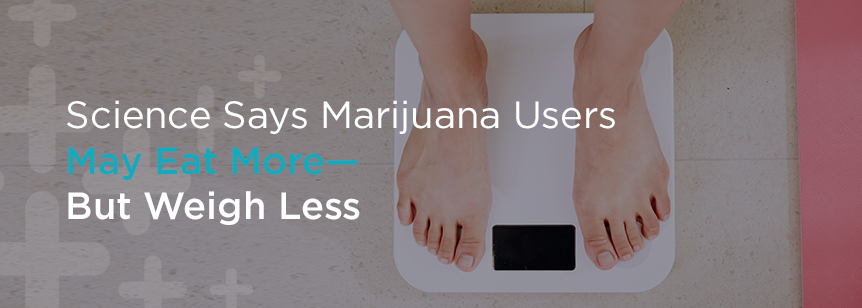
As you probably know, marijuana is notorious for stimulating appetite—aka, giving you the munchies. But do medical or recreational marijuana users show any significant differences from non-users when it comes to eating habits, weight, and nutrition?
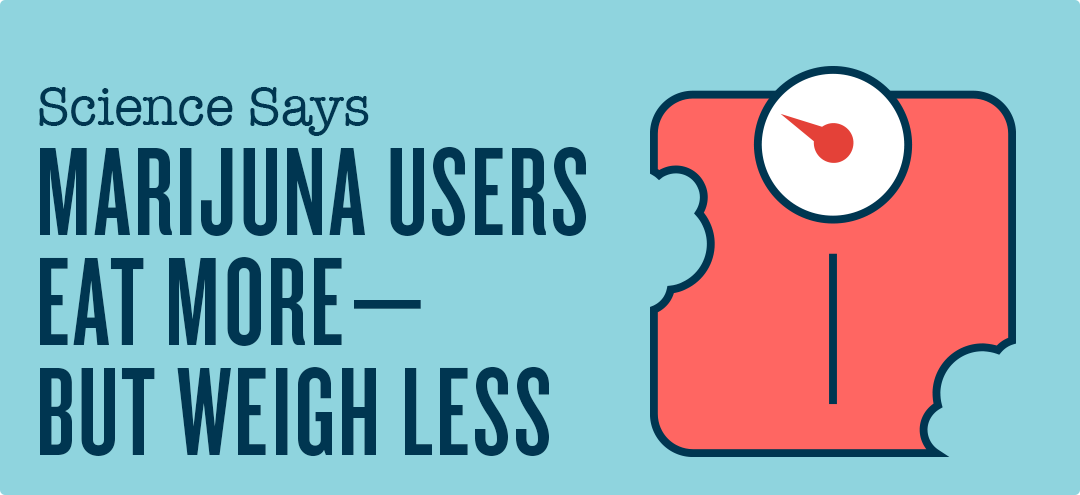
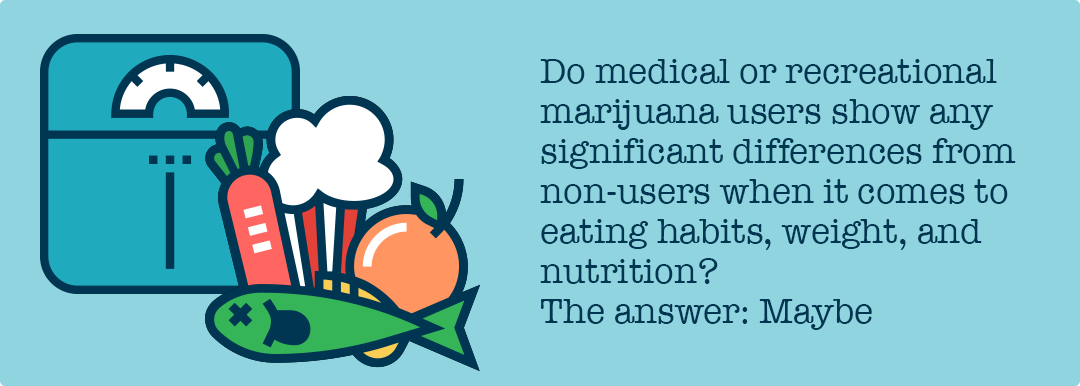
The answer, it seems, is a qualified “maybe,” though a number of studies have attempted to shed light on various parts of the question. Let’s take a look at what the research says.

A 1988 study found that those who smoked marijuana containing THC (instead of a placebo) took in 40 percent more total daily calories—the majority of which came not from meals, but from snack foods like candy bars and potato chips. Unsurprisingly, the volunteers who smoked real pot gained weight over the 13 days of the study. The problem is, the authors of this dated study had adult male volunteers sequestered in a research facility with little to do besides smoke marijuana and eat—not exactly a real-world situation. (Though it does reflect the conventional wisdom that marijuana can, indeed, make you hungry.)
THC seems to stimulate ghrelin, the hunger hormone, which signals to your body that it’s time to eat—even if you’ve recently eaten. In fact, scientists are able to “turn on” ghrelin in lab rats by piping THC vapor into their air space. The THC-exposed rats then eat more frequent meals than their non-enhanced counterparts.
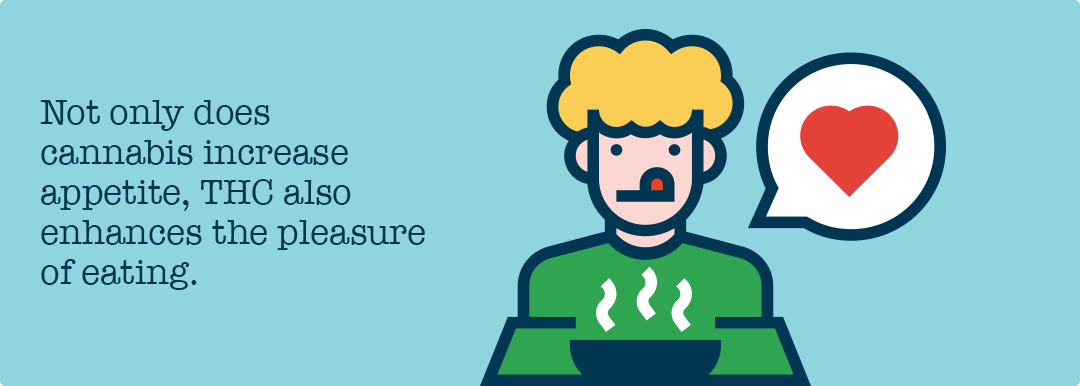
From a medical standpoint, this effect is really helpful. One of medical marijuana’s most common uses is as an appetite stimulant and nausea reliever for people undergoing treatments for cancer, eating disorders, and a number of other conditions. Not only does it increase appetite, THC also enhances the pleasure of eating. Like most things cannabis, this effect has something to do with the endocannabinoid system, which regulates homeostasis for factors like sleep, appetite, temperature, mood, fertility, and hormone levels.
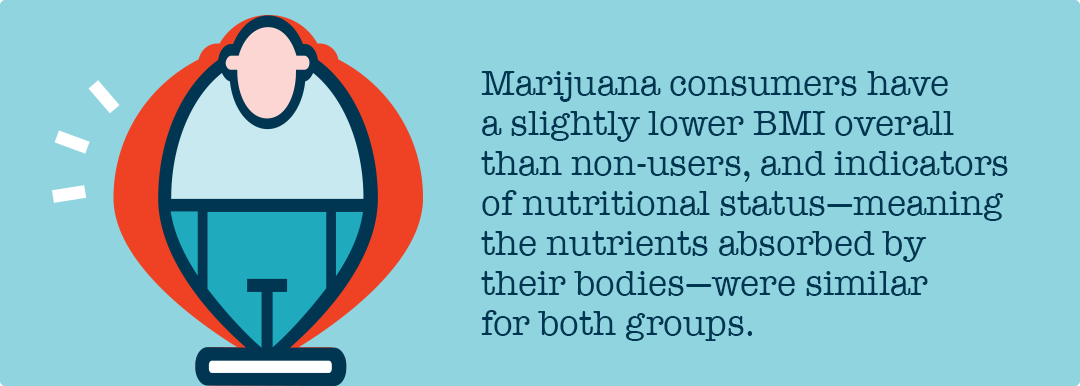
A study from 2001 on the eating habits of marijuana users found that they consumed more pork, cheese, soda, beer, and salty snacks than non-users—which doesn’t sound super healthy. But, interestingly, this study also found that marijuana consumers had a slightly lower BMI overall than non-users, and indicators of nutritional status—meaning the nutrients absorbed by their bodies—were similar for both groups.
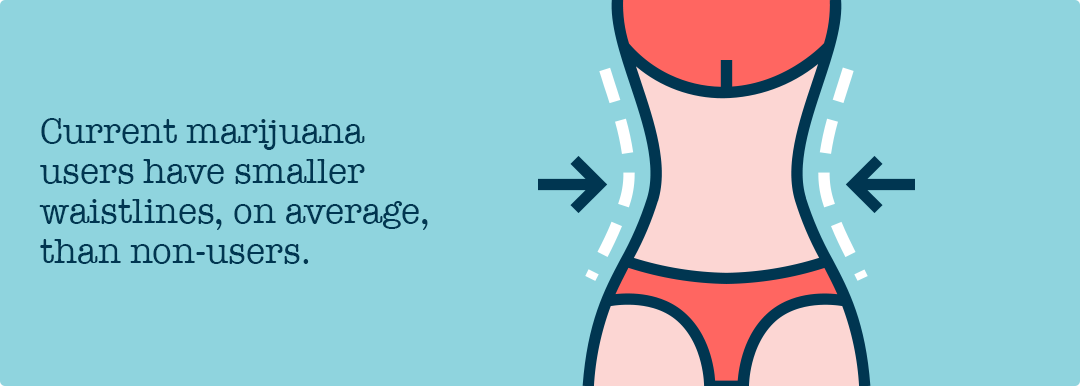
A 2013 study showed that current marijuana users have smaller waistlines, on average, than non-users. These authors hypothesized that the effect has to do with fasting insulin levels; in marijuana users, fasting insulin was measured at 16 percent lower on average than non-users.
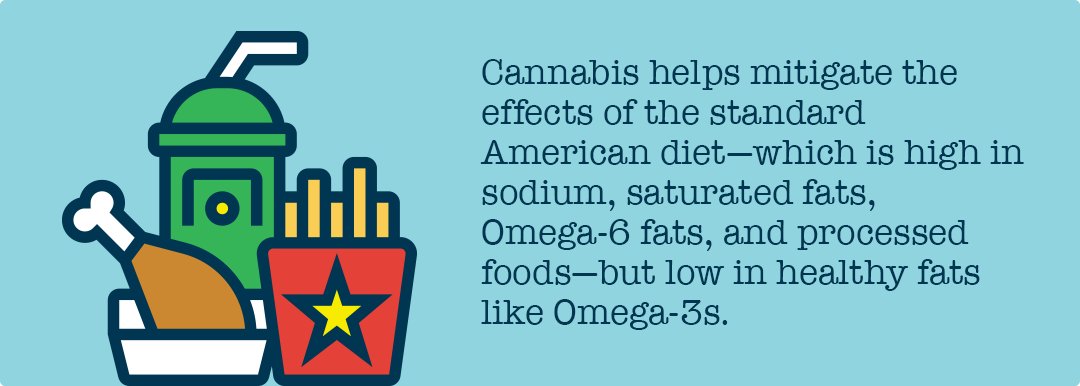
Yet another study, this one from 2018, sought to explain why adult cannabis users in the U.S. tend to have lower BMIs than non-users. The authors hypothesized that cannabis helps mitigate the effects of the standard American diet—which is high in sodium, saturated fats, Omega-6 fats, and processed foods—but low in healthy fats like Omega-3s.
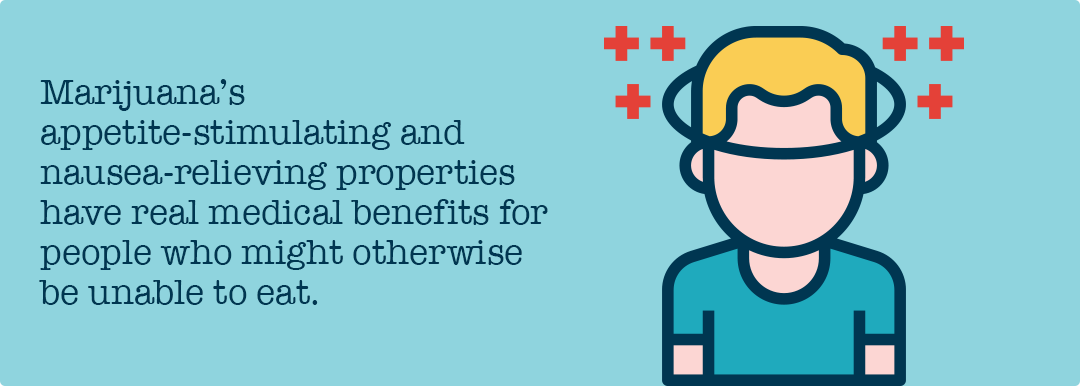
If all this evidence seems contradictory, that’s because it kind of is. On one hand, marijuana users may take in more calories and more junk foods than non-users. On the other, these habits don’t seem to make marijuana users gain weight consistently or show other markers of nutritional imbalances. And, of course, marijuana’s appetite-stimulating and nausea-relieving properties have real medical benefits for people who might otherwise be unable to eat.
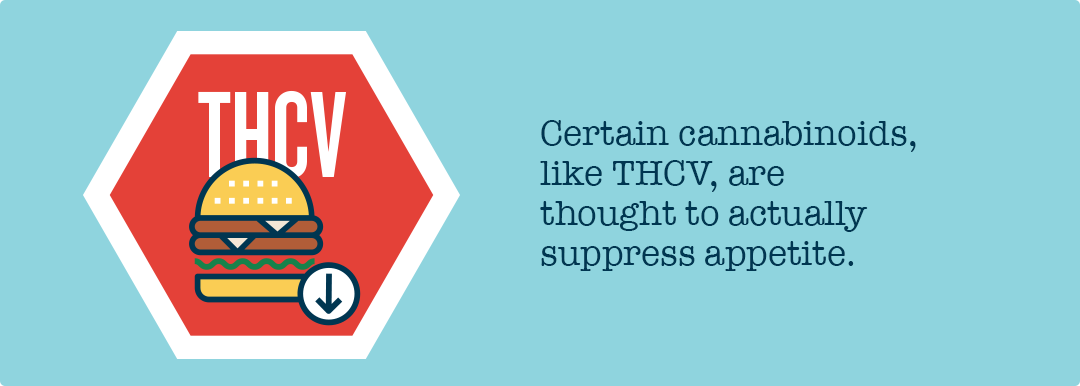
It’s worth remembering that the issue is probably more complex than we think, as certain strains of marijuana—and certain cannabinoids, like the less-common THCV—are thought to actually suppress appetite. Plus, all of these studies looked at THC use, while none considered CBD.
But if you’re using THC, and you don’t exactly welcome its appetite-stimulating effects, a little advance planning before your session can go a long way. Be sure to stock up with the kinds of foods that won’t make you feel guilty later. Instead of reaching for that pint of Ben & Jerry’s, try strawberries, blueberries, or grapes. Whole grain crackers, olives, high-quality cheeses, nuts, and dark chocolate, too, are the kinds of snacks that will nourish your body and taste amazing when you’re taking your medicine.
No Information on MarijuanaDoctors.Com should be used to diagnose, treat, prevent or cure any disease or condition. You can view our Full Disclaimer here.